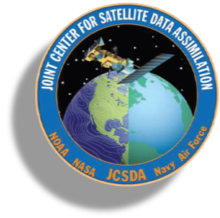The Joint Center for Satellite Data Assimilation (JCSDA) is pleased to announce that we are planning the first public, open-source release of the Joint Effort for Data assimilation Integration (JEDI) system this fall.
JEDI to Go: High-Performance Containers for Earth System Prediction
JCSDA's Joint Effort for Data assimilation Integration (JEDI) is an innovative, next-generation data assimilation system that leverages modern software development practices to optimize both performance and extensibility. As the software approaches its initial public release, the JEDI user community continues to grow in size and diversity. All this diversity means that users will want to run JEDI on a range of computing platforms, from state-of-the-art HPC systems (on-premise Supercomputers) to cloud instances, to small linux clusters to laptops. Containers to the rescue!
JCSDA Support Leading to the Implementation of Operational Assimilation of COSMIC-2 Data
The JCSDA Presents a New Near-Real Time (NRT) Observation Monitoring Web Product
This month the JCSDA is announcing a new Near-Real Time (NRT) observation monitoring web product based on the Joint Effort for Data assimilation Integration (JEDI). This product represents the achievement of several firsts for the JCSDA core team as we near our scheduled initial release of JEDI software.
Aircraft Observation Comparison: Before & After COVID-19
Launch of the JCSDA Real-Time Marine Data Assimilation CI/CD Testbed
As you may already have noticed, the first real-time prototype application from the Sea-ice Ocean Coupled Assimilation (SOCA) project was launched on the JCSDA website this past January. The SOCA team has been actively partnering with NOAA and NASA to develop improved marine data assimilation methods for the next generation of prediction systems. This real-time system on the JCSDA website acts as a testbed for SOCA software development, and helps give the public an inside window as to how our development is proceeding.
Operations at the JCSDA Are Going Strong Despite Mandatory Telework
Fourth JEDI Academy a Success in Monterey, CA - February 24-27, 2020
Summary of the Eighth JCSDA Symposium at the 2020 AMS Annual Meeting
JCSDA CRTM Coefficient Generation Code Sprint – January 20-31, 2020 – ESSIC – College Park, MD
As part of a two-week code sprint from January 20th to 31st , CRTM community users and core developer team members came together at the Earth System Science Interdisciplinary Center (ESSIC) in College Park MD to organize the existing gaseous transmittance coefficient generation software into a coherent, end-to-end package.


